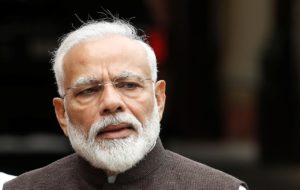Tackling The Scourge Of Misinformation In India

Combating misinformation requires more than legal frameworks and advisories. India must invest in digital literacy and critical thinking education (Photo by Swastik Arora/Unsplash)
In a recent post on the social media platform X, stand-up comedian Neeti Palta wrote, ‘If comedians can be held accountable for jokes, why can’t news media be held accountable for misinformation?’
Palta was referring to the controversies and penal actions against a few Indian stand-up comedians in recent times. She compared it with the impunity given to news media outlets during their coverage of Operation Sindoor, India’s military offensive against Pakistan.
The military operation has brought to the fore the dangerous role of misinformation in modern conflicts. This played out not just at the borders, but also in the digital realm where a fierce “information war” unfolded across news and social media outlets.
The information landscape was marked by a deluge of unverified claims and competing narratives. While Pakistan’s military used doctored videos to support their assertions of downing Indian drones and inflicting damages on air bases, India’s Press Information Bureau refuted them after fact-checking. India’s reports of targeting terrorist camps were also dismissed by Pakistan as a “reckless propaganda campaign”.
Throughout the operation, social media was abuzz with AI-generated images and old footage from wars in other countries misrepresented as recent. Fabricated battlefield visuals were floated to mislead the public at large.
A few Indian news channels falsely claimed that Indian defense units had entered Pakistani territory to retaliate. Non-state actors in India, such as the fringe nationalists, staunch patriots and influential online troll networks openly advocated spreading false information as a strategic tool against Pakistan.
The digital battleground — with deliberate use of disinformation to sway public perception on both sides — highlighted that winning “likes” and “minds” online is now central to modern warfare.
Legal safeguards
India has legal tools to counter misinformation, though their efficacy is debatable. The Bharatiya Nyaya Sanhita, 2023, criminalises the spread of false statements, rumors or reports, including electronically, with the intention to cause public mischief, alarm or incite violence or enmity or threaten national integrity.
The Information Technology (IT) Act, 2000, along with the Intermediary Guidelines and Digital Media Ethics Code Rules 2021, requires social media platforms to remove government-flagged unlawful content, including misinformation.
Section 69A of the IT Act empowers the government to block online content threatening national security. While primarily for print media, the Press Council Act, 1978 establishes ethical standards for journalism and can censure violations, with proposed amendments seeking to bring electronic and social media within its jurisdiction.
The practical implementation of these laws, however, is fraught with challenges. The sheer volume and speed of information — both true and false — on social media makes it difficult to trace its origins and hold individuals accountable.
Besides, defining “misinformation” legally without curbing free speech is difficult. There are concerns about the potential misuse of these laws to suppress dissent rather than targeting malicious misinformation.
Government fact-checking mechanisms also face credibility issues. Enforcing takedown orders on global social media platforms poses logistical and jurisdictional challenges, especially after the misinformation has gone viral.
For instance, the “Plandemic” video that went viral in early 2020. The video, filled with conspiracy theories about the origins of Covid-19 and promoting unproven cures, was viewed by millions of users on different social media platforms before aggressive takedowns began.
But false narratives had already permeated the public discourse, contributing to distrust in health authorities and vaccine hesitancy.
Digital literacy
Compounding the problem is India’s low digital literacy. According to the 78th Round of National Sample Survey, India’s digital literacy rate is very poor. This digital divide is more pronounced in rural areas with significant gender disparities, where women often have the lowest access and literacy.
Even with increasing internet penetration, many lack the skills to evaluate the credibility of online information. This makes them vulnerable to misinformation, contributing to its unchecked spread.
The rise of artificial intelligence (AI) adds to another layer of complexity. AI tools can now generate highly realistic fake images, videos (deepfakes) and audio with increasing precision, making it difficult to differentiate real from manipulated content.
During recent Indian elections, there were reports of AI being used for personalised campaign messages, synthetic speeches and lifelike videos of deceased leaders, blurring the lines of reality. Widespread digital illiteracy combined with AI’s realistic deception capabilities has created a particularly dangerous situation, making it easier for malicious actors to manipulate public opinion on a large scale.
The issue of media responsibility too is not new: it predates the digital era. In a powerful indictment of the electronic media’s coverage after the 26/11 Mumbai attacks, the Supreme Court of India stated that the live, round-the-clock coverage of the security operations served neither the national interest nor any social cause.
Driven purely by commercial interests and the pursuit of higher television rating points, the news channels relayed real-time information that was likely used by the terrorists and their handlers to their advantage, thereby jeopardising national security.
Post the Pahalgam attack, the Ministry of Information and Broadcasting — recalling similar incidents from Kargil to Kandahar — issued an advisory urging all media platforms, news agencies and social media users to refrain from live reporting of defense operations and the movement of security forces in the interest of national security. The advisory was clear: unrestricted reporting during military action can endanger lives and national interests.
Beyond the law
Combating misinformation requires more than legal frameworks and advisories. India must invest in digital literacy and critical thinking education, especially in underserved communities.
Media organisations must prioritise accuracy, implement robust fact-checking initiatives and ensure transparency through prompt correction. Incentivising factual reporting and a cultural shift is needed for this landscape change, demanding action from multiple stakeholders.
Independent fact-checking initiatives should be supported and made accessible in different regional languages.
Finally, fostering a culture of questioning — where individuals don’t just forward messages without checking their authenticity — is critical.
The recent India-Pakistan tensions highlight that misinformation is not just an irritant; it is a weapon.
Addressing this challenge needs concerted and collaborative effort from not only the government and media organisations but also technology platforms, educators and individuals.
Prioritising digital literacy, promoting ethical journalism and fostering a culture of questioning before consuming can lead to a more informed and resilient society that is capable of discerning truth from the smoke and mirrors of conflict.
Neeti Palta’s tweet wasn’t just a question, it was a call to action.
(Published under Creative Commons by 360info™. Read the original article here)





